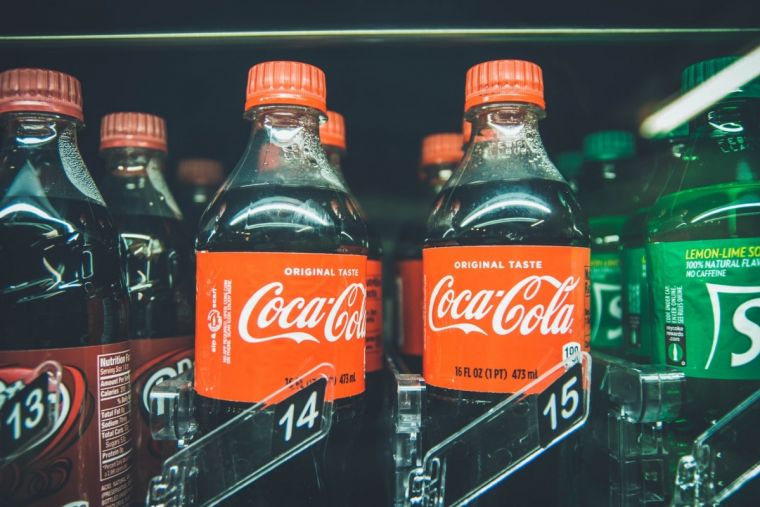Sir David Attenborough, Tearfund urge Coca-Cola and other big brands to act on plastic pollution

The plastic pollution crisis is "one of the most pressing problems of today", Sir David Attenborough has warned in response to an alarming new report revealing the life-threatening impact it is having in developing countries.
Figures in the 'No Time to Waste' report reveal that one person is dying as often as every 30 seconds in developing countries because of diseases linked to plastic pollution and waste.
The problem has escalated in developing countries due to the lack of facilities to properly dispose of plastic, leaving many communities and individuals to dump or burn their rubbish as a means of waste disposal.
The report is a joint collaboration between Fauna & Flora International, of which Sir David is vice-president, Christian development agency Tearfund, the Institute of Development Studies and WasteAid.
It is the first to analyse the impact of plastic pollution and waste on specifically the health of the world's poorest people.
It finds that between 400,000 and a million people are dying each year in developing countries as a result of illnesses and diseases like diarrhoea, malaria and cancer brought on by the uncollected waste and plastic pollution close to people's homes.
Uncollected rubbish affects around two million people worldwide, with the equivalent of a double decker busload of plastic waste being burned or dumped every second in developing countries.
This in turn is damaging the environment by releasing more carbon emissions into the earth's atmosphere, while up to 12.7 million tonnes of plastic is flowing into the world's oceans each year, the report says.
Rubbish that builds up in rivers can also cause flooding, resulting in the proliferation of water-borne diseases.
The charities are calling on multinational corporations like Coca-Cola, Nestlé, PepsiCo and Unilever to adopt alternatives to single-use plastic and halve the amount they distribute in developing countries by 2025.
"It is high time we turn our attention fully to one of the most pressing problems of today – averting the plastic pollution crisis – not only for the health of our planet, but for the wellbeing of people around the world," said Sir David.
"We need leadership from those who are responsible for introducing plastic to countries where it cannot be adequately managed, and we need international action to support the communities and governments most acutely affected by this crisis."
READ MORE: The problem with plastic and how we can fix it
The publication of the report coincides with the launch of Tearfund's new Rubbish Campaign calling for urgent action from Coca-Cola, Nestlé, PepsiCo and Unilever.
Dr Ruth Valerio, Global Advocacy & Influencing Director at Tearfund said: "They sell billions of products in single-use plastic packaging in poorer countries where waste isn't collected, in the full knowledge that people will have no choice but to burn it, discard it in waterways or live among it.
"The CEOs running these multinationals can no longer ignore the human cost of single-use plastic - fundamental changes to business models are urgently required. There is no time to waste."
Elisabeth Whitebread, marine plastics specialist at Fauna & Flora International, said the corporations should commit to a full audit of their supply chains and the life cycle of their plastic products in order to identify where these are contributing to pollution and "bring it to a stop".
Patrick Schröder, Research Fellow at Institute for Development Studies, said the findings of the report showed that the current business model of "take, make, use and dispose" was unsustainable.
He said that businesses, governments and citizens needed to come together to embrace a "circular economy" based on sustainable consumption and production.
"There are a growing number of examples of the circular economy in action – particularly across Africa and Asia – and we need to learn from these initiatives to inform and scale future efforts to tackle this pressing global challenge," he said.
Zoë Lenkiewicz, Head of Programmes and Engagement at WasteAid added that the problem could not be resolved by recycling alone.
"We need systemic change," she said.
One person dies every 30 seconds in developing countries from diseases caused by plastic pollution, according to a report by @Tearfund. @ruthvalerio tells #Sunrise that multi-national companies must "take responsibility" and act.
— Sky News (@SkyNews) May 14, 2019
More on tackling waste: https://t.co/GdxHCp5H09 pic.twitter.com/fqsMVKeU0d











